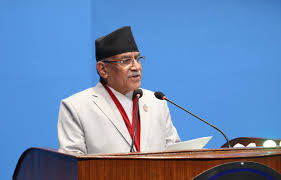A general body meeting of Samyukt Kisan Morcha (SKM) will be held on April 30, 2023, to plan the next course of action in the aftermath of the Kisan Mahapanchayat and the meeting of a 15-member delegation of SKM with the Union Minister for Agriculture and Farmers Welfare at Krishi Bhavan, New Delhi on March 20. The delegation submitted a memorandum to him. 
The Kisan Mahapanchayat placed its 10-point demands before the union government to comply with the written assurances given to the SKM on December 9, 2021 by the government to address the grievance of the farmers. These demands are:
According to the recommendation of the Swaminathan Commission, a law should be enacted and implemented to guarantee procurement at (Minimum Support Price) MSP in accordance the formula of C2 + 50 percent on all crops.
SKM has clarified on many occasions that the committee constituted by the Union government on MSP and its declared agenda is opposed to the demands of the farmers. SKM demanded scrap ping of this committee and set up a new committee on MSP for legal guarantees for all crops, with proper representation of farmers, including representatives of SKM, as promised by the Union government.
More than 80% of the farmers are trapped in debt and forced to commit suicide due to rising input costs in agriculture and not getting remunerative prices for the crop. In such a situation, the SKM demands debt waiver for all farmers and reduction in input costs, including fertilizers.
The Electricity Amendment Bill, 2022 be sent to the Joint Parliamentary Committee for consideration should be withdrawn. The central government had given a written assurance to the SKM that the Bill would be introduced in Parliament only after consultation with SKM. But despite this, the government presented it in the Parliament without any discussion. SKM reiterates the demand for free electricity for agriculture and 300 units of electricity for rural households.
Union Minister of State for Home Ajay Mishra Teni, the main conspirator in the murder of four farmers and a journalist at Tikonia in Lakhimpur Kheri district, should be expelled from the cabinet and arrested and sent to jail.
The government should fulfill the promise of providing compensation and rehabilitation to the families of the farmers who were martyred and injured during the farmer's movement and in Lakhimpur Kheri.
SKM demanded abolition of the questionable Pradhan Mantri Fasal Bima Yojana. Union government should adopt ll measures to compensate the farmers for the continuous losses due to floods, drought, hailstorm, untimely and/or excessive rains, crop related diseases, wild animals, stray cattle etc. Implement universal, comprehensive and effective crop insurance and compensation package for crops. Damage assessment should be done on the basis of individual plots.
The Kisan Pension Scheme of ₹5,000 per month for all farmers and farm-labourers should be implemented immediately.
The fabricated cases registered against the farmers in the states and other states and union territories during the farmer's movement should be withdrawn immediately.
Land should be allocated for the construction of a memorial for the martyred farmers at Singhu Morcha.







